Asheville City Council will hold a hearing on the proposed fiscal year 2022-23 budget during its 5 p.m. regular meeting Tuesday, June 14. In anticipation of that hearing, Xpress has pulled 10 noteworthy takeaways from the 112-page document.
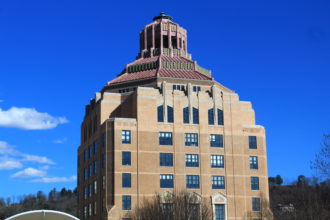

Asheville City Council will hold a hearing on the proposed fiscal year 2022-23 budget during its 5 p.m. regular meeting Tuesday, June 14. In anticipation of that hearing, Xpress has pulled 10 noteworthy takeaways from the 112-page document.
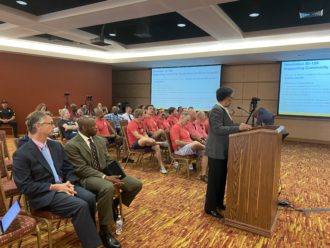
As in previous years, members of the public both applauded the city for funding long-promised initiatives, such as the 2018 Transit Master Plan and increases to firefighter pay, and voiced concern over how other taxpayer money would be spent.

The foundation approved roughly $47 million in grants throughout the year, including over $3 million for personal protective equipment, $5 million to address substance use disorder, $3.7 million for racial equity and $3 million toward affordable housing.

“Anybody that follows the economy or follows the news will tell you that there’s a big elephant in the room that we can’t measure, and we’re all thinking about it, and it’s going to affect your planning,” Tom Tveidt, president of SYNEVA Economics, told Council members at their March 13 annual retreat. “That being said, I think there will be a pre-coronavirus economy and a post-coronavirus economy.”
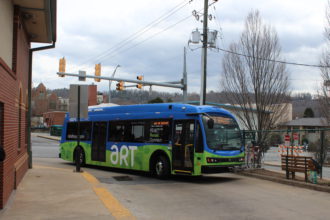
Some Council members were ready to put the peddle to the metal in the search for new transit system funding on Jan. 28. Not so Council member Vijay Kapoor, who convinced his peers to set the throttle to idle until the board’s next meeting, when the issue will be part of the formal agenda.
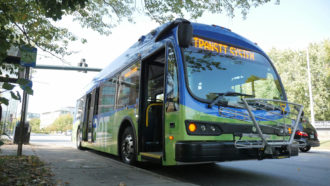
Jessica Morriss, Asheville’s assistant director of transportation, explained that the higher costs were primarily driven by federally mandated door-to-door paratransit service for residents with disabilities. The remaining transit budget gap, she said, was due to higher-than-expected prices for fuel and electricity to power city buses.

Buncombe County has identified over $2.9 million in solar energy projects that could be installed at government-owned facilities. The projects are estimated to generate more than $4.7 million in energy savings over their estimated 30-year operational lifespan and help the county reach its goal of powering all government operations with 100% renewable energy by 2030.
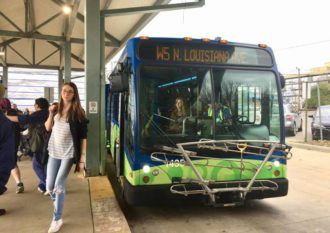
City staff announced that a plan to extend the hours of all bus routes until 10 p.m. Monday-Saturday and 8 p.m. on Sunday will likely be delayed until after the start of the next fiscal year during the Oct. 22 meeting of Asheville City Council.

Asheville City Council will consider updating affordable housing incentives; amending the city’s charter to restore at-large elections during its Oct. 22 meeting.

Asheville’s current short-term rental rules do not allow homestays to offer rooms that contain either a stove, a full-sized refrigerator or a kitchen sink. A new definition of “kitchen,” proposed by local host organization the Homestay Network, would still forbid stoves in homestay dwellings but allow sinks and refrigerators.
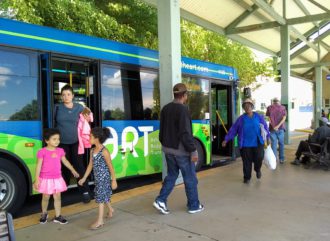
What does transit — and the city’s support of its bus network — mean to Asheville? Xpress talked to residents with different perspectives to better understand Asheville Redefines Transit’s role in the community.
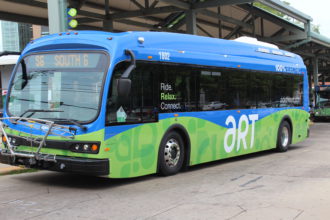
Questions linger about the buses’ capability to keep up with their diesel and hybrid counterparts on Asheville’s demanding roads. Issues with the length and battery life of the vehicles have led city officials to delay the planned purchase of three more electric units.

“Council cannot claim to be transit advocates while leaving evening service behind. We must include all routes to 10 p.m. and Sunday and holiday service to 8 p.m.”
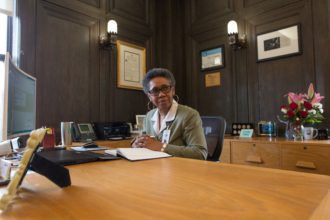
The net proposed operating budget stands at $190.31 million, a 5.4% increase over last year’s adopted budget. Campbell said the spending plan aligned with the priorities outlined by Council members in March during their annual retreat, which focused on transit and affordable housing.

“A major investment in electric public transportation will make a huge difference in equity and in achieving our goal of 100% renewable energy! So I invite all who value both social and environmental justice to insist on funding for great, electrified public transportation.”
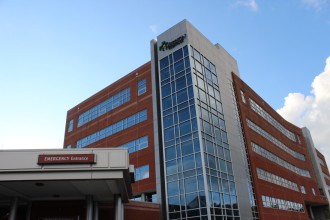
At a budget work session on March 26, city CFO Barbara Whitehorn reported that Asheville can expect to receive $2.5 million in property and sales taxes from the health system in fiscal year 2019-20 — only half of the $5 million initially estimated by the Buncombe County tax office — then $5 million instead of $8 million for every year to follow.

“This may hurt some feelings, but you can no longer operate the city of Asheville like it’s the Oprah Winfrey talk show, where you get a car and you get a car,” said Council member Keith Young, referencing the daytime TV host’s famous giveaways. “As much as we love all these programs and trying to help the public good… this is the time to close the bank.”
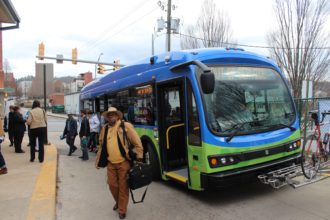
Even accounting for the fossil fuels needed to generate the electricity they will use, said Council member Julie Mayfield, each vehicle will produce 54 fewer tons of annual carbon emissions than one of Asheville’s current buses. Once all five buses hit the streets, the total emissions savings of 270 tons will make up a third of the city’s annual carbon reduction target.
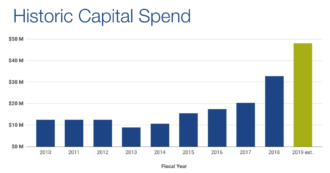
City Manager Debra Campbell called the Feb. 12 capital budget briefing “food for thought” as she encouraged Council members to focus and prioritize their objectives. “This is why we’re presenting this information,” she said. “We’ve got some tough decisions that we need to make over the next several years.”
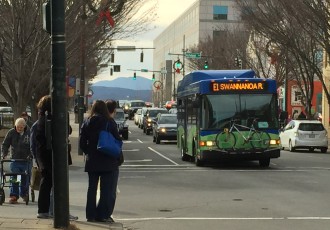
Asheville’s human population growth has been matched by an increase in the number of vehicles on the region’s roads. Efforts to accommodate the resulting traffic — or move people around the city in different ways — were at the heart of many new developments in 2018.
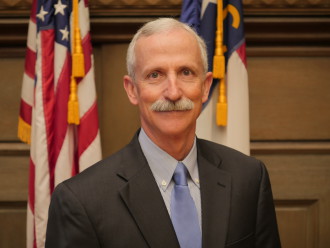
Change proved the only constant among staff members in Asheville city government during 2018. Firings, resignations, reassignments and new hires left the city’s bureaucracy radically changed from its makeup at the start of the year.